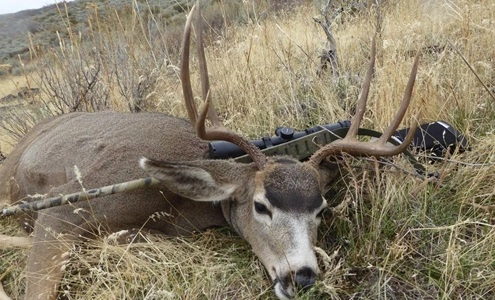Yes, it is illegal to dump a deer carcass in most states across the United States. Wildlife laws, waste disposal regulations, and environmental protections typically govern how animal remains should be handled. Improper disposal of a deer carcass can lead to legal penalties, environmental concerns, and public health risks.
Legal Framework for Disposing of Deer Carcasses
1. State Regulations on Wildlife Disposal
- Most states have specific laws on how to dispose of animal remains, particularly for game animals like deer.
- These regulations are designed to prevent the spread of diseases, protect the environment, and maintain public health standards.
- Hunters are typically required to adhere to state rules for processing and disposing of the remains of animals they harvest.
2. Environmental Concerns
- Dumping deer carcasses in public areas, waterways, or unapproved locations can contaminate water supplies, attract scavengers, and spread diseases such as Chronic Wasting Disease (CWD).
- States like Wisconsin and Minnesota have strict rules for carcass disposal to prevent the spread of CWD among deer populations.
3. Public Nuisance Laws
- Dumping a deer carcass in a public or residential area can result in fines or other legal penalties under littering or public nuisance laws.
- Improperly discarded carcasses can cause foul odors and pose risks to nearby communities.
Common Methods of Legal Disposal
1. Landfill Disposal
- Many states allow deer carcasses to be disposed of in landfills that accept animal remains. It is often required to double-bag the remains to prevent contamination or odors.
2. Burial
- Burial on private property is often permitted, provided it is done at a sufficient depth to prevent scavengers from accessing the remains.
- Some states specify minimum depth requirements, typically ranging from 2 to 4 feet.
3. Incineration
- Cremation or incineration at an approved facility is another legal method of disposal, particularly for carcasses in areas affected by CWD.
4. Designated Disposal Sites
- Many wildlife agencies designate specific locations for carcass disposal, especially during hunting seasons. These sites are equipped to handle remains safely and in compliance with state regulations.
Penalties for Illegal Disposal
1. Fines and Penalties
- Fines for illegally dumping a deer carcass can range from $50 to $1,000, depending on the state and severity of the violation. Repeat offenses may result in higher penalties.
2. Loss of Hunting Privileges
Hunters who violate carcass disposal laws may face suspension or revocation of their hunting licenses.
3. Environmental Cleanup Costs
Offenders may be required to pay for the cleanup of improperly dumped carcasses, particularly if it causes environmental damage.
4. Criminal Charges
In extreme cases, such as intentional dumping in protected areas or waterways, offenders could face misdemeanor or felony charges.
Tips for Proper Deer Carcass Disposal
1. Follow Local Guidelines: Check state wildlife agency websites for specific disposal requirements and designated disposal sites.
2. Use Approved Disposal Methods: Utilize landfills, burial, or incineration options as permitted by local laws.
3. Prevent Contamination: If transporting a carcass, ensure it is securely wrapped or bagged to avoid leakage or contamination.
4. Report Illegal Dumping: If you witness someone improperly dumping a carcass, report the incident to local wildlife authorities or law enforcement.
Related FAQs
Q1. Can I bury a deer carcass on my property?
Ans: Yes, in many states, you can bury a deer carcass on your property, but it must typically be at a sufficient depth (e.g., 2-4 feet) to prevent scavengers from digging it up.
Q2. Is it illegal to dump a deer carcass in the woods?
Ans: In most states, dumping a deer carcass in public or private woods without permission is illegal and may result in fines.
Q3. Can I leave a deer carcass in the field after hunting?
Ans: Field dressing (removing internal organs) is often allowed, but the entire carcass must not be left behind. Hunters should follow regulations for removing remains.
Q4. Are there specific laws for deer carcasses infected with CWD?
Ans: Yes, states in CWD-affected areas often require special disposal methods, such as incineration or disposal at designated sites, to prevent the disease from spreading.
Q5. Can I throw a deer carcass in the trash?
Ans: This depends on local waste disposal regulations. Many states require the carcass to be double-bagged and disposed of at an approved landfill.
Conclusion
Dumping a deer carcass is illegal in most states due to environmental, health, and wildlife management concerns. Proper disposal methods, such as burial, landfill disposal, or incineration, are essential to prevent legal penalties and ensure public safety. Hunters and others must familiarize themselves with local regulations to comply with the law and protect natural ecosystems

